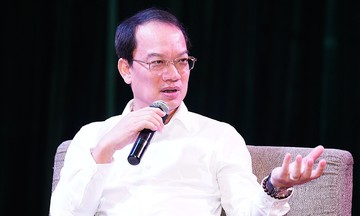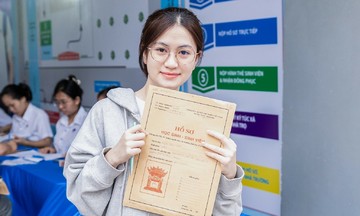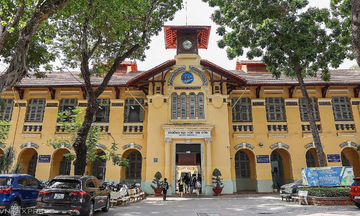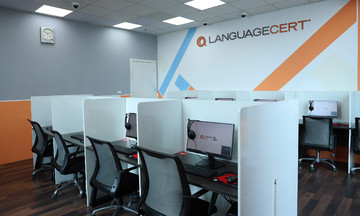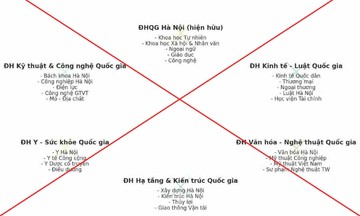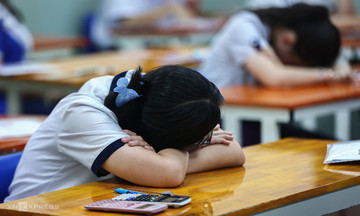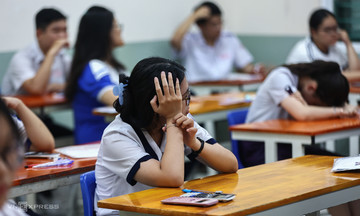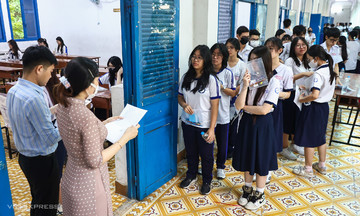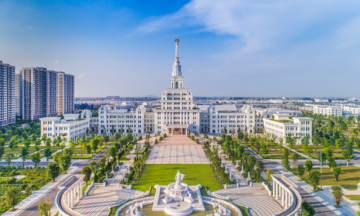Ambassador Knapper shared this information at the US Education Fair in Hanoi on 24/9. Nearly 1,000 students attended the event, which featured about 60 universities and colleges.
"Our biggest goal is to ensure Vietnamese students can receive the best advice and preparation for a successful student visa application," Knapper said.
Currently, Vietnamese students wishing to study in the US need to apply for one of three visa types: F-1 (for full-time academic students), M-1 (for vocational/technical students), or J-1 (for exchange visitors).
To be granted a visa, applicants must have an acceptance letter (I-20 or DS-2019) from a Student and Exchange Visitor Program (SEVP)-certified school, clear financial documentation, meet academic and language requirements, and plan to return to Vietnam after graduation.
According to the ambassador, honesty and demonstrating a clear commitment to their studies are key for students to succeed in the visa interview.
Regarding the H-1B work visa, he stated that everything is currently under review.
Last week, the Trump administration announced plans to increase the fee businesses pay for H-1B visa workers to 100,000 USD, raising concerns about post-graduation work opportunities for international students.
"The changes regarding the H-1B visa remain open. However, whether a student is international or domestic, practical experience is still the deciding factor for job opportunities," said Hannah Girman, a representative from the University of Cincinnati, known for its Co-op program, which combines academics with practical internships in fields like information technology, aerospace science, nursing, and healthcare.
 |
Students gather information at a US university booth on the afternoon of 24/9 in Hanoi. Photo: Khanh Linh |
Students gather information at a US university booth on the afternoon of 24/9 in Hanoi. Photo: Khanh Linh
Van Thuc and Anh Truong, final-year students at FPT University, arrived at the fair early, seeking opportunities to study information technology abroad. They expressed particular interest in scholarships, living expenses, and academic programs.
Meanwhile, Ly, Ha, and Phuong, 10th and 11th graders from Vinh Phuc Specialized High School, were interested in undergraduate scholarships in economics.
According to Ding Huang, a representative from St. John's University, known for its programs in business, pharmacy, and computer science, 80% of the university's international students receive financial aid, up to 35,000 USD per year. Scholarships depend heavily on high school academic performance.
David B. Danenberg, a representative from Carnegie Mellon University, said the university seeks applicants who demonstrate clear potential through outstanding academic achievements. For graduate programs, applicants need research or internship experience. Using AI to write essays is strictly prohibited.
Carnegie Mellon University excels in STEM fields, with its AI systems management program attracting significant attention. The university's scholarships average 30% of tuition fees.
According to the Open Doors Report, in the 2023–2024 academic year, over 22,000 Vietnamese students pursued undergraduate and postgraduate (master's, doctoral) studies in the US, ranking Vietnam 6th in terms of international student numbers. Ambassador Knapper considered this a positive sign for the bilateral education partnership.
Khanh Linh



